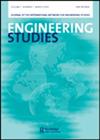日冕时代的常规科学
IF 1.3
3区 工程技术
Q2 EDUCATION, SCIENTIFIC DISCIPLINES
引用次数: 1
摘要
本期《工程研究》在COVID-19大流行期间出版,这篇社论是在“封锁”条件下在家撰写的。现在,要知道大流行的长期后果将是什么还为时过早。在短期内,我们的读者和作者应该有耐心,因为我们的大多数编辑和审稿人不得不优先考虑期刊工作以外的事情。会有一些延误。工程研究并不是必不可少的基础设施,我们的文章也不打算提供摆脱这种危机的方法。有些事情——保持安全和健康,照顾亲人,帮助不知所措的朋友和学生——总是比学术出版更重要,但现在尤其如此。我们必须正确看待事情。但从长远来看,我们也会思考我们的专业知识在小方面和大方面能提供什么帮助。这场危机揭示了很多关于工程师和工程的事情,我预测,在一段时间内,对冠状病毒大流行的研究将成为这本杂志和其他期刊的主要内容。我们看到工程师们奋起应对:例如,帮助快速建立临时医院,改造工厂的设备,生产呼吸机、口罩和洗手液。我们也看到一些工程基础设施已经适应得非常好。许多工作场所的在线迁移并不完美,但它完全可以实现,这是值得注意的。与此同时,这场危机向我们表明,工程师们在多大程度上没有考虑到这一点。以全球客运航空系统为例:它是一个社会技术奇迹,由飞机、机场、交通管制技术、电子预订系统、安全系统、海关检查实践、飞行员和机组人员以及培训他们的学校等组成。通常我们几乎察觉不到它的失误,也察觉不到它的渐进式演变。然而,从历史的角度来看,客运航空有时不得不在压力下迅速发展,因为它的工程师没有考虑到——或者更糟糕的是,考虑到但没有采取行动——根本性的缺陷。例如,20世纪60年代中期的许多航空专家认为超音速运输机是航空业的未来——显然,他们没有理解人们不会容忍音爆造成的持续的声音污染2001年9月11日的事件揭示了客运航空系统的配置不能防止这种类型的攻击。在过去的一年里,越来越多的人清楚地认识到,面对石油峰值和气候变化,客运航空是不可持续的。这种反应越来越强烈,特别是在欧洲的一些地区,“飞行羞耻感”越来越强烈,因此减少了航空旅行——这是客运航空系统的设计者也没有预料到的。现在,在2020年3月的过程中,人们发现客运航空的结构无法承受全球大流行。毫无疑问,飞机很快就会再次飞行,但系统将不同于以往。2019冠状病毒病大流行也提供了一个令人不安的窗口,让我们看到了“高”技术和“低”技术、“熟练”和“非熟练”劳动力之间的区别,以及看到这些差异的问题本文章由计算机程序翻译,如有差异,请以英文原文为准。
Normal Science in the Time of Corona
This issue of Engineering Studies comes out during the COVID-19 pandemic, and this editorial is being written from home under ‘lockdown’ conditions. Right now, it is too early to know what the long-term consequences of the pandemic will be. In the short term, our readers and authors should be patient as most of our editors and reviewers have had to prioritize matters other than journal work. There will be some delays. Engineering Studies is not essential infrastructure, and our articles are not going to provide a way out of this crisis. Some things – staying safe and healthy, looking after loved ones, helping friends and students who are overwhelmed – are always going to be more important than academic publishing, but especially right now. We have to put things in perspective. But putting things into perspective alsomeans reflecting on howour expertise can help, in small ways and large. This crisis has revealed much about engineers and engineering, and I predict that studies of the coronavirus pandemicwill be a staple of this and other journals for some time. We have seen engineers rise to the occasion: in, for instance, helping to rapidly buildmakeshift hospitals and retooling factories tomanufacture ventilators, masks, and hand sanitizer. We’ve also seen that some engineered infrastructures have adapted incredibly well. The migration of many workplaces on-line hasn’t gone perfectly, but it’s remarkable that it could be done at all. At the same time, the crisis has shown us how much engineers have failed to take into account. Take the global passenger aviation system: it is a sociotechnical marvel made up of airplanes, airports, traffic control technologies, electronic booking systems, security systems, customs inspection practices, pilots and crews and schools for training them, etc., etc. Normally we hardly perceive its slip-ups, nor its incremental evolution. Yet an historical view shows that passenger aviation has occasionally had to evolve quickly and under duress because of revelations that its engineers failed to consider – or, even worse, considered but failed to act upon – fundamental flaws. Many aviation experts of the mid-1960s, for instance, thought that supersonic transports were the future of their industry – without, apparently, understanding that people wouldn’t tolerate continual sound pollution from sonic booms.1 The events of 11 September 2001 revealed that the passenger aviation system wasn’t configured to prevent that style of attack. Over the past year, it has become more obvious to more people that passenger aviation is unsustainable in the face of both peak oil and climate change. The growing response, especially in some parts of Europe, has been a growing sense of ‘flight shame’ and hence reduced air travel – a turn that the passenger aviation system’s designers also did not anticipate. Now, over the course of March 2020, it has emerged that passenger aviation was not constructed to withstand a global pandemic. No doubt the planes will fly again soon enough, but the system will not be the same. The COVID-19 pandemic also provides an unsettling window onto distinctions between ‘high’ and ‘low’ tech and ‘skilled’ and ‘unskilled’ labor, and the problems with seeing the
求助全文
通过发布文献求助,成功后即可免费获取论文全文。
去求助
来源期刊

Engineering Studies
ENGINEERING, MULTIDISCIPLINARY-HISTORY & PHILOSOPHY OF SCIENCE
CiteScore
3.60
自引率
17.60%
发文量
12
审稿时长
>12 weeks
期刊介绍:
Engineering Studies is an interdisciplinary, international journal devoted to the scholarly study of engineers and engineering. Its mission is threefold:
1. to advance critical analysis in historical, social, cultural, political, philosophical, rhetorical, and organizational studies of engineers and engineering;
2. to help build and serve diverse communities of researchers interested in engineering studies;
3. to link scholarly work in engineering studies with broader discussions and debates about engineering education, research, practice, policy, and representation.
The editors of Engineering Studies are interested in papers that consider the following questions:
• How does this paper enhance critical understanding of engineers or engineering?
• What are the relationships among the technical and nontechnical dimensions of engineering practices, and how do these relationships change over time and from place to place?
 求助内容:
求助内容: 应助结果提醒方式:
应助结果提醒方式:


